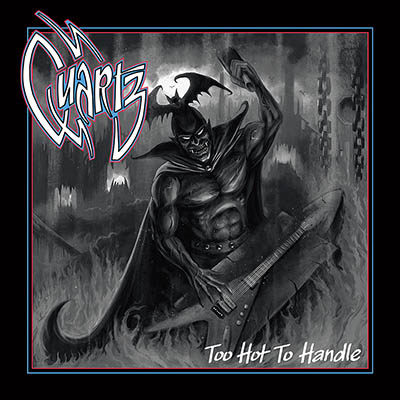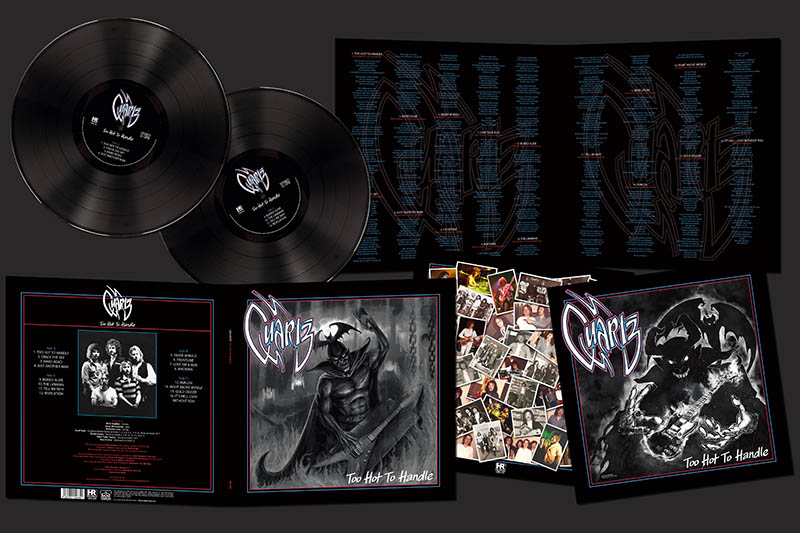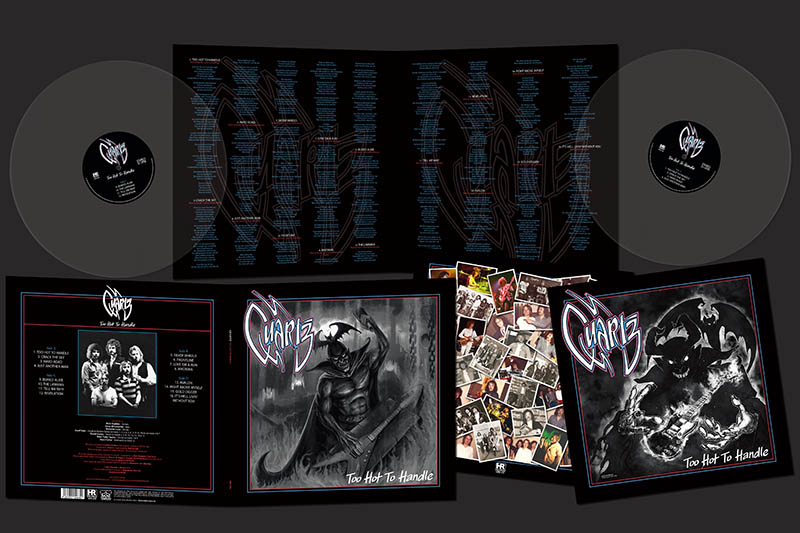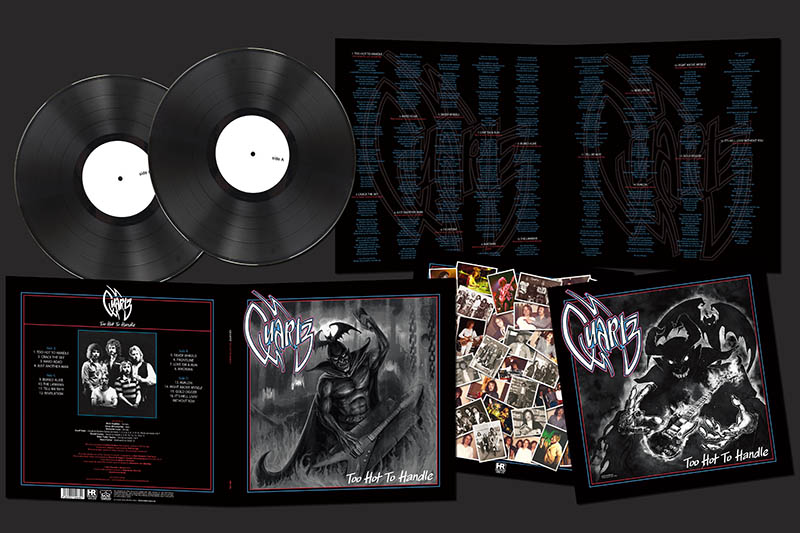 | ||||
| QUARTZ - Too Hot to Handle DLP | |
HRR 476, ltd 500, 200 x black + 300 x transparent ultra clear vinyl, gatefold cover, insert | |
| -Too Hot to Handle -Crack the Sky -Hard Road -Just Another Man -Silver Wheels -Frontine -Love 'em & Run -Madman -Buried Alive -The Lawman -Tell Me Why -Revelations -Avalon -Right Above Myself -Gold Digger -It's Hell Livin' Without You | |
SOLD OUT! | |
Quartz from Birmingham are known to fans around the world as one of the more popular protagonists of the glorious New Wave Of British Heavy Metal of the early to mid-1980s. However, the actual history of the band goes back to as early as 1973 when they were still known as Bandy Legs. The band signed to Jet Records in 1976 and supported Black Sabbath and AC/DC on their respective UK tours. The name was changed to Quartz for their 1977 self-titled debut album, produced by Tony Iommi. Queen guitarist Brian May handled guitar on the song "Circles", which also features a certain Ozzy Osbourne on backing vocals.
Quartz released their second studio album »Stand Up and Fight« in 1980 receiving a lot of positive press attention. »Against All Odds« followed in 1983 before the original incarnation of Quartz disbanded.
»Too Hot To Handle« is a collection of 16 rare demo recordings of Quartz from the era 1981/82. Some of the material ended up on the third Quartz album »Against All Odds« (1983), albeit in totally different versions.
Original guitarist Mick Hopkins explains: “Taffy Taylor and Derek Arnold, founding members of the band, left in the summer of 1981. We quickly recruited a new bass player called Steve Mc Loughlin and David Garner (vocalist) was recommended to us by a good friend of ours. David then decided to leave so we had to search for another vocalist and we were lucky enough to find Geoff Bate.” Drummer Malcolm Cope adds: “Some of the tracks were recorded on reel to reel tapes and others on cassette tapes. Some tapes were stored in better conditions than others so they sound better on playback.”
So basically the 16 tracks you can hear on »Too Hot To Handle« are the sum total of material forming the basis of selection for the »Against All Odds« album. Mick Hopkins elaborates: “On an album you are time limited so you (the band) have to choose what you (the band) feel are your strongest or best songs. We also had to be mindful of what songs we had written earlier with David Garner that would best suit Geoff Bate’s vocal range. Obviously, with our keyboard player Geoff Nicholls leaving the band in 1979 to join Black Sabbath we continued on as a four piece outfit thus having a more basic and rugged sound than we did before. When Taffy Taylor and Derek Arnold left the band in 1981, the band's sound and style did change slightly with the new members bringing their own ideas and experiences to the song writing and music composing table.“ After »Stand Up and Fight« there was a slight change of musical direction as Malcolm Cope puts it: “I think we tried to create a slightly more polished and commercial sound in an attempt to open up new emerging markets at the time, e.g. America.”
Now, Quartz is always described as a NWOBHM band. Is that really true in a technical sense? Would it be correct to consider Bandy Legs as the direct forerunner to Quartz?
Mick Hopkins explains: ”Bandy Legs was actually formed in 1973 by me, Malcolm Cope, Derek Arnold, Geoff Nicholls and Mike 'Taffy' Taylor, the same band members who became Quartz in 1977. Back in 1975, we got our big break when we were the support act on Black Sabbath’s 'Sabotage' tour. Our musical style and writing was already moving towards a heavier rock sound but after watching Sabbath perform night after night that simply confirmed to us that the path that we were already traveling in was the right one.” Malcolm Cope agrees: “After the punk rock scene in the UK imploded on itself almost as quickly as it appeared a lot of new young musicians were inspired to pick up their instruments and have a go to get their music out there. Bands like Iron Maiden, Angel Witch, Tygers Of Pan Tang and Def Leppard came to the fore and because we had a similar faster and aggressive sound we were also dubbed, either rightly or wrongly, as NWOBHM as we were definitely not 'new' as such but we are British and from Birmingham the home of heavy metal music.”
Matthias Mader


